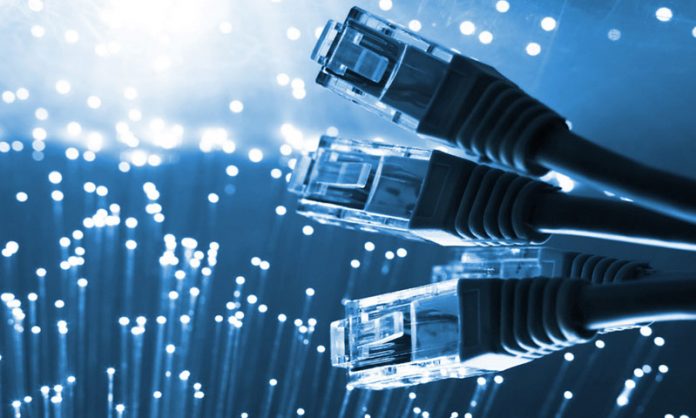By: SYED MAHMOOD EJAZ
For the past few weeks there was an internet breakdown all over Pakistan. Pakistan has over 130 million internet users since 1990 (now over 140 million), which makes Pakistan the
7th largest population of internet users around the world.
Pakistanis are faced several problems due to this reason. Some of the problems are written as follows: a lot of freelancers lost their jobs as they couldn’t submit their projects within the given time. Fiverr displayed Pakistani users as unavailable, IT sector of the country started to go down, and many MNCs were planning or already have shifted their offices abroad.
So why is it happening? Why is there an internet breakdown?
Pakistan’s government is deploying a nationwide firewall. to put it more correctly they are updating the firewall. Pakistan has had a firewall which was used to block various sites like adult content, YouTube (in the past), and they even blocked X(twitter). They are now simply updating the firewall, to control online content, social media applications and traffic, to keep a track on several things around “anti-state propaganda.” This is the cause of internet disruption throughout the country.
The Pakistan Business Council (PBC) stated “Many multinational companies (MNCs) are either planning to relocate their back offices from Pakistan or have already done so, as the reported imposition of a firewall causes widespread internet disruptions across the country,”.
The Pakistan Information and Communication Technology (ICT) market was valued at US$ 15.05 billion in 2023 and was about to grow upto 1.87% at a Compounded Annual Growth
Rate (CAGR) which meant the value of ICT market would have increased upto US $16.51 billion by 2028. Due to the internet disruption it can cause loss of around $300 million in
Pakistan’s economy.
“The IT industry is facing a disaster; grappling with unprecedented operational disruptions that threaten the very foundation of Pakistan’s burgeoned tech sector,” Senior Vice Chairman of Pakistan Software Houses Association Ali Ihsan.
Now several questions arise. What is a firewall? Why do we need it and Why is Pakistan’s government updating it?
Simply, firewall at a country-level is like a virtual border to control and monitor internet traffic entering and exiting the country.
Firewalls are used for several reasons, such as:
➢ CENSORSHIP: It means to block access of specific website, social media platform, or any online service which is considered harmful or sensitive by the government.
➢ NATIONAL SECURITY: To protect the country against cyber threats, hacking, by foreign entities.
➢ DATA PROTECTION: Controlling the flow of sensitive data, such as personal information, in and out of the country.
➢ CONTENT FILTERING: Blocking access to content considered inappropriate or harmful, such as pornography or extremist materials.
Now Pakistan will have its own working firewall like China’s Great Firewall (Golden Shield Project), Iran’s National Information Network, North Korea’s Kwangmyong network,
Russia’s Sovereign Internet Law; employing a national firewall to regulate internet content.
A Firewall can be implemented using various techniques, including:
➢ (Internet Protocol) IP blocking: Blocking access to a website or online service by blocking its IP address.
Example: Imagine you’re trying to call a friend whose number you have blocked, you can’t reach them, right? IP blocking works similarly.
➢ (Domain Name System) DNS filtering: Controlling what websites you can visit by filtering the address of websites.
Example: Think of a glossary given at the end of a novel, it includes words given in the book only, you can’t find other words in the glossary from outside the book. DNS filtering works similarly.
➢ Deep Packet Inspection: Checking the contents of data available all over internet.
Example: Think about the security at the airport, they open up your luggage just to check what’s inside of it.
➢ Network Traffic Monitoring: Watching and analyzing internet data flowing through a particular network.
Example: Think of network traffic monitoring like traffic cameras on a particular highway, helping to detect congestion, accidents, or suspicious activity.
Pakistan had its nationwide firewall in 2016, so why are they updating it now?
The roles old firewall could play were:
➢ Basic URL filtering and blocking
➢ Limited social media regulation
➢ Focus on blocking access to blasphemous or
pornographic content
➢ Updated Firewall (2024) will play following roles:
➢ Advanced content filtering and monitoring
➢ Enhanced social media regulation and control
➢ Ability to identify IP addresses associated with “antistate propaganda”
➢ Improved national security features.
➢ Increased government control over online content
How can we speed up our internet? Well, can we?
➢ Opt for fiber-optic connections: Fiber-optic connections generally offer faster speeds than DSL or cable connections.
➢ Use VPNs: Virtual Private Networks (VPNs) can help bypass firewall restrictions and improve speeds.
➢ Check for network congestion: Restart your router or modem to ensure it’s not causing congestion.
➢ Upgrade your internet plan: If possible, upgrade to a higher-speed internet plan with your current ISP.
➢ Use internet acceleration tools: Tools like internet acceleration software or browser extensions can help optimize your internet connection.
The above-mentioned solutions might not completely resolve the issue, as the firewall upgrade is a nationwide problem.
However, these steps might help improve your internet experience.
How much time will it take to resolve this problem?
Well, not soon. This might take a bit longer time than
expected. Expected time for resolving the problem is 24th of September 2024. According to a post of Pakistan Today ”The PTA had previously stated that internet users in Pakistan
would continue to experience disruptions even after the initial deadline for resolution. With the country now facing its 21st day of slow internet, officials have indicated that full
restoration will take more time.”
The contributor is a final year student of ARTIFICIAL INTELLIGENCE at DAWOOD UNIVERSITY OF ENGINEERING AND TECHNOLOGY.





